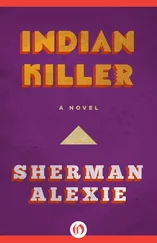It was true. My father was handsome without being beautiful, intelligent without being pretentious, and charming without being sexual. And he was a widower, a single father who’d raised an accomplished son. My mother had died of breast cancer when I was six years old, and my father, too much in love with her memory, had never remarried. He was now as devoted and loyal to curing breast cancer as he had been to my mother.
A University of Washington Law graduate, he had begun life as the only son of a wheat farmer and his schoolteacher wife. Eagle Scout, captain of the basketball team, and homecoming king, my father was the perfect candidate. He was a city commissioner, then a state representative, and then he ran for the U.S. Senate. After decades of voting for the sons and grandsons of privilege, the state’s conservatives were excited, even proud, to vote for a public school veteran, a blue-collar prince, a farmer’s son, a boy with dirt in his shoes.
His best moment during his senatorial campaign was during the final debate with his Democratic rival. “My opponent keeps talking about how hard he’s worked for his country, for our state. And I’m sure he has. But my grandfather and my father taught me how to be a farmer. They taught me how to plant the seed and grow the wheat that feeds our country. I worked so hard that my hands bled; look, you can still see my scars. And I promise you, my fellow Washingtonians, that I will work hard for you. And I will work hard with you.”
My father lost liberal King County by a surprisingly close margin but kicked ass in the rest of the state and was declared senator at 9:35 P.M. on the night of the election.
Yes, my father had become Jefferson Smith and had marched into the other Washington as the first real populist in decades.
I’m not ashamed to admit that I cried a little on the night my father was elected. You’ve seen the photograph. It was on the cover of the Seattle Times and was reprinted all over the country. Everybody assumed that I was happy for my father. Overjoyed, in fact. But I was also slapped hard by grief. I desperately missed my mother, but I desperately missed my father as well. You see, he was now a U.S. senator with presidential ambitions, and that meant he belonged to everybody. I knew I’d forever lost a huge part of his energy and time and, yes, his love; I’d have to share my father with the world. I also knew I’d lost my chance to ever be anything other than an all-star politician’s son.
But who wants to hear the sob story of a senator’s son? The real question is this: Why the hell would I risk my reputation and future and my father’s political career — the entire meaning of his life — for a street fight — for a gay bashing? I don’t know, but it was high comedy.
So I laughed while that tough faggot beat Spence and Eddie into the pavement. And I laughed as Bernard dragged me toward his car, shoved me into the backseat, and slammed the door shut. Then he popped open his trunk, grabbed his tire iron, and ran back toward the fight.
I powered down the window and watched Bernard race up to that black-belt fag and threaten him with the tire iron.
“Stop this shit,” Bernard yelled. “Or I’ll club you.”
“Why the hell are you waving that thing at me?” he screamed back. “You started it.”
It was true, playground true. Spence, Eddie, Bernie, and I had started it. We’d been drunkenly ambling down the street, cussing and singing, when Spence spotted the amorous boys in their car.
“Lookit,” he said. “I hate them fucking fags.”
That’s all it took. With banshee war cries, Spence and Eddie flung open the driver’s door and dragged out the tough guy. I dragged my best friend (whom I didn’t recognize) from the passenger seat and broke his nose.
And now, I was drunk in Bernard’s car and he was waving a tire iron at the guy we’d assaulted.
“Come on, Spence, Eddie,” Bernard said.
Bloodied and embarrassed by their beating, Spence and Eddie staggered to their feet and made their way to the car. Still waving that tire iron, Bernard also came back to me. I laughed as Spence and Eddie slid into the backseat beside me. I laughed when Bernard climbed into the driver’s seat and sped us away. And I was still laughing when I looked out the rear window and saw the tough guy tending to his broken and bloody lover boy. But even as I laughed, I knew that I had committed an awful and premeditated crime: I had threatened my father’s career.
Sixteen years before I dragged him out of his car and punched him in the face, my best friend Jeremy and I were smart, handsome, and ambitious young Republicans at Madison Park School in Seattle. Private and wealthy, Madison Park was filled with leftist children, parents, and faculty. Jeremy and I were the founders and leaders of the Madison Park Carnivores, a conservative club whose mission was to challenge and ridicule all things leftist. Our self-published newspaper was called Tooth & Claw, borrowed from the poem by Alfred Tennyson, of course, and we filled its pages with lame satire, poorly drawn cartoons, impulsive editorials, and gushing profiles of local conservative heroes, including my father, a Republican city commissioner in a Democratic city.
Looking back, I suppose I became a Republican simply because my father was a Republican. It had never occurred to me to be something different. I loved and respected my father and wanted to be exactly like him. If he’d been a plumber or a housepainter, I suppose I would have followed him into those careers. But my father’s politics and vocation were only the outward manifestations of his greatness. He was my hero because of his strict moral sense. Simply put, my father kept his promises.
Jeremy, a scholarship kid and the only child of a construction worker and a housewife, was far more right wing than I was. He worried that my father, who’d enjoyed bipartisan support as city commissioner, was a leftist in conservative disguise.
“He’s going to Souter us,” Jeremy said. “Just you watch, he’s going to Souter us in the ass.”
Jeremy and I always made fun of each other’s fathers. Since black kids told momma jokes, we figured we should do the opposite.
“I bet your daddy sucks David Souter’s dick,” Jeremy said.
Jeremy hated Supreme Court Justice David Souter, who’d been named to the court by the first President Bush. Thought to be a typical constitutional conservative, Souter had turned into a moderate maverick, a supporter of abortion rights and opponent of sodomy laws, and was widely seen by the right as a political traitor. Jeremy thought Souter should be executed for treason. Was it hyperbole? Sure, but I think he almost meant it. He was a romantic when it came to political assassination.
“When I close one eye, you look just like Lee Harvey,” I said.
“I’m not Oswald,” he said. “Oswald was a communist. I’m more like John Wilkes Booth.”
“Come on, man, read your history. Booth killed Lincoln over slavery.”
“It wasn’t about slavery. It was about states’ rights.”
Jeremy had always enjoyed a major-league hard-on for states’ rights. If it had been up to him, the United States would be fifty separate countries with fifty separate interpretations of the Constitution.
Yes, compared to Jeremy, I was more Mao than Goldwater.
It was in January of our sophomore year at Madison Park that Jeremy stole me out of class and drove me to the McDonald’s in North Bend, high up in the Cascade Mountains, more than thirty miles away from our hometown of Seattle.
“What are we doing way up here?” I asked.
“Getting lunch,” he said.
So we ordered hamburgers and fries from the drive-thru and ate in the car.
“I love McDonald’s fries,” he said.
Читать дальше












